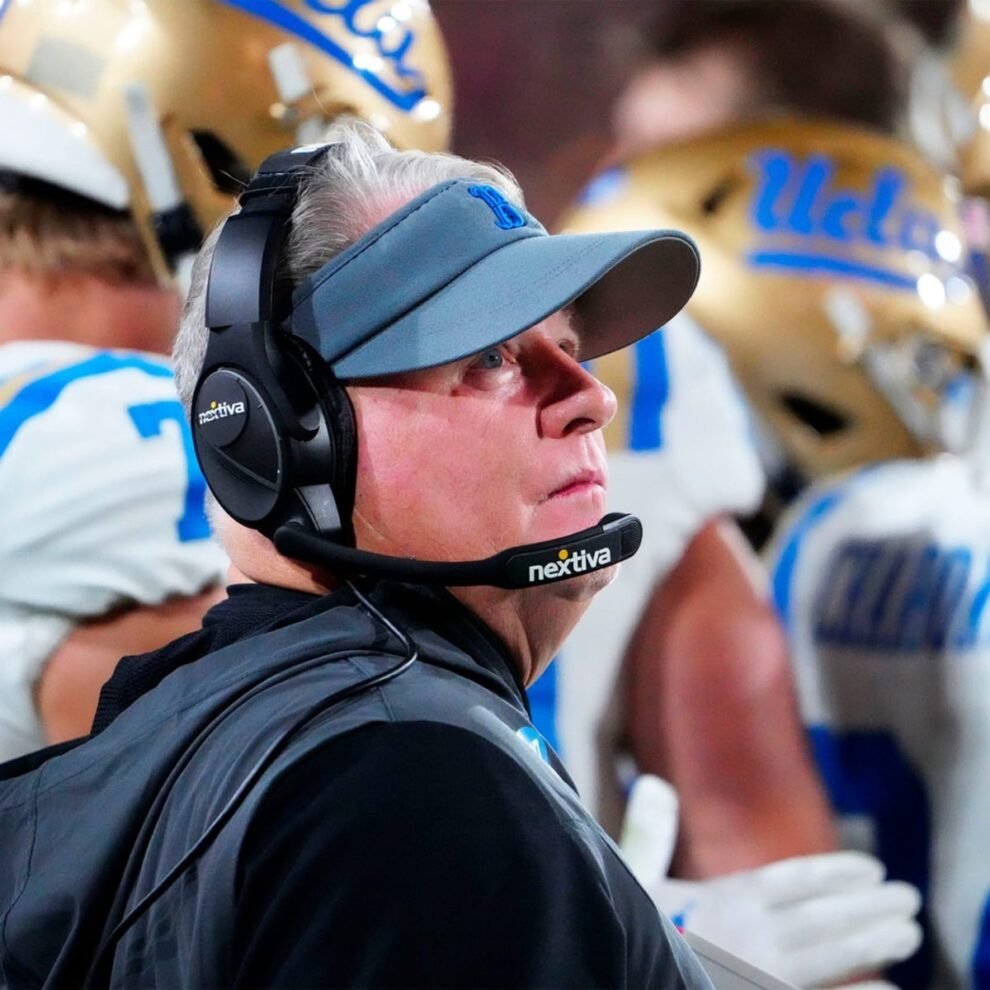In a move that has sent ripples through the college football landscape, Chip Kelly, the head coach of the UCLA Bruins, has decided to step down from his position after six seasons at the helm. This announcement comes as the Bruins are gearing up for a significant transition, moving from the Pac-12 to the Big Ten Conference. Kelly’s departure marks the end of an era for UCLA football, one that has seen its fair share of highs and lows.
Key Highlights:
- Chip Kelly steps down after six seasons with the UCLA Bruins.
- Kelly’s departure comes as UCLA prepares to join the Big Ten Conference.
- He leaves behind a record of 35-34, with signs of stagnation in the program.
- Speculation points to Kelly moving to Ohio State as an offensive coordinator.
- UCLA’s search for a successor begins amidst preparations for the Big Ten move.

A Look at Kelly’s Tenure: During his time with UCLA, Kelly amassed a record of 35-34, reflecting a tenure filled with moments of promise but also challenges. Despite a commendable effort to revitalize the Bruins’ football program, recent seasons hinted at stagnation, raising questions about the team’s direction. Notably, Kelly’s innovative approach to the game and his strategic acumen were evident in the Bruins’ performance, yet the team struggled to consistently compete at the highest levels.
The Road Ahead for UCLA: With Kelly’s exit, UCLA faces the daunting task of finding a new head coach who can steer the program through its upcoming transition to the Big Ten Conference. This move represents a significant shift in the competitive landscape for the Bruins, demanding a leader capable of navigating the complexities of one of college football’s premier conferences.
The Implications of Kelly’s Departure:
Strategic Considerations: Kelly’s decision to step down is seen by many as a strategic move, with reports suggesting his potential relocation to Ohio State as an offensive coordinator. This shift highlights the fluid nature of college football coaching careers and the continuous search for optimal alignments between coaches’ skills and team needs.
Impact on Recruiting and Team Morale: The timing of Kelly’s departure presents challenges and opportunities for UCLA’s football program. As the Bruins navigate this transition, maintaining recruiting momentum and team morale will be critical. The ability to swiftly appoint a successor who embodies the vision and ambition of UCLA football will be key to ensuring stability and continuity.
Conclusion: Chip Kelly’s tenure at UCLA has been a journey of transformation, marked by moments of brilliance and periods of challenge. As he moves on, the focus shifts to UCLA’s search for a new head coach, a process that will significantly influence the future trajectory of the Bruins’ football program. The legacy Kelly leaves behind is a testament to his commitment to the game and the impact he has had on UCLA football.
Summary: Chip Kelly’s resignation as head coach of the UCLA Bruins marks a pivotal moment for the program, especially in light of its upcoming transition to the Big Ten Conference. His tenure, characterized by a mix of innovation and inconsistency, leaves UCLA at a crossroads, searching for a new leader to navigate the challenges of one of college football’s most competitive environments.


















